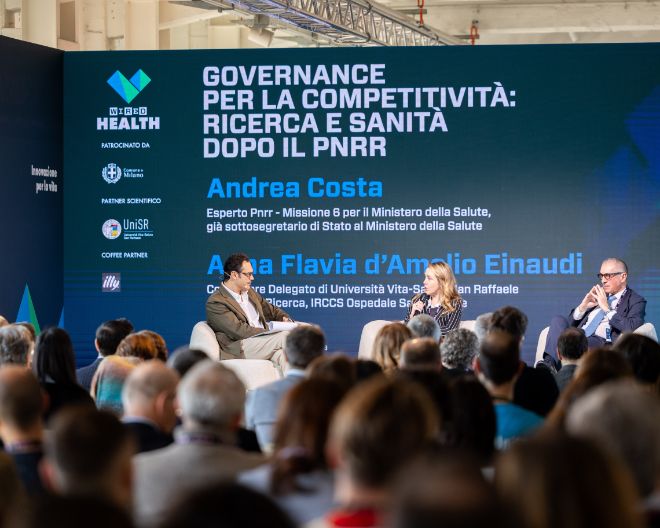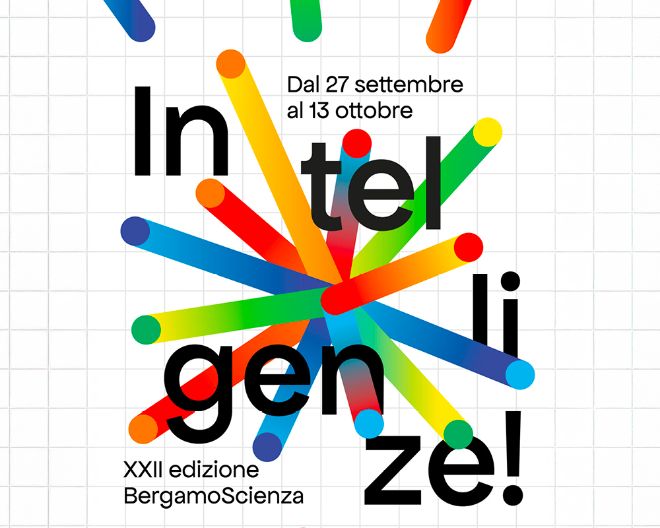UniSR for Citizen Science: a workshop to promote collaborations between funding bodies, patients and researchers

UniSR's commitment to Citizen Science is well-established and reached a new milestone with the organisation of the workshop ‘Sinergie per la Citizen Science: collaborazione tra Enti Finanziatori, Pazienti e Ricercatori’ (Synergies for Citizen Science: collaboration between Funders, Patients and Researchers), held on Wednesday 22nd November. Citizen Science is defined by the European Commission as ‘the voluntary participation of non-professional scientists in research and innovation at different stages of the process and at different levels of engagement, from shaping research agendas and policies, to gathering, processing and analysing data, and assessing the outcomes of research’.
Il workshop
The workshop was attended by delegates from AISM - Associazione Italiana Sclerosi Multipla, AIRC, Diabete Italia, F.A.I.S. Onlus - Federazione Associazioni Incontinenti e Stomizzati, Fondazione per la Ricerca sulla Fibrosi Cistica, FRRB - Fondazione Regionale per la Ricerca Biomedica, and Fondazione Telethon, as well as members of the scientific community and representatives of UniSR research support offices.
With this meeting, UniSR wished to spark a debate that would lead funding bodies to consider including Citizen Science approaches as a requirement in funding calls, encourage the involvement of patient associations in defining the priorities and objectives of funding calls and, finally, strengthen the collaborations already in place between our researchers and their corresponding patient associations.
Some key principles of Citizen Science were highlighted: Citizen Science is a valid research methodology involving people as an integral part of the scientific process, generating new knowledge and offering an advantage to both professional scientists and the citizens involved. In particular, it was then discussed how 'Patient Science' (Citizen Science dedicated to patients) makes use of patients' experience in coping with illness and daily life, making patients the subject (and not the object) of research and producing results in line with patients' expectations.
AISM gave a concrete example of Citizen Science integration: with the European MULTI-ACT project, AISM drew up guidelines for the involvement of multiple sclerosis patients in research. Among other initiatives, AISM organised focus groups attended by patients, caregivers and researchers, who together discussed the priorities for future research funded by AISM.
An open dialogue between Funders, Patients and Researchers
In a subsequent round table, the need to fund research that meets the real needs of people was discussed. Indeed, there are successful experiences in which patients are involved first in the definition of the call for funding and then in the evaluation of the projects to be funded, following a screening of the most deserving projects carried out by scientists/experts on the subject. Furthermore, an incentive towards the scientific community to engage more patients could be the inclusion in calls for proposals of rewards for those projects that foresee such involvement. Finally, in order to facilitate the adoption of a common language, literacy courses for patients on research issues may be useful to encourage their involvement on an equal footing with researchers.
The discussion showed that scientists are willing to do some introspection work to overcome the forma mentis that leads them to seek their research questions exclusively from the scientific literature and not from patient needs. Patient input can then answer ethical questions related to their research in advance and give them access to focus groups with patients and their associations to create a prioritised list of research topics and initiate new collaborative projects.
UniSR's commitment to Citizen Science
Leading to this workshop, UniSR has been a partner for three years in the European project TIME4CS, which aims to bring about sustainable institutional changes in favour of Citizen Science through continuous mutual learning between partners and the exchange of knowledge and good practices. UniSR's activities in recent years have included: informative seminars, dedicated communication activities (newsletters, articles for the TIME4CS website, posts on the University's social networks), the inclusion of Citizen Science modules in courses for PhD and Master's students, participation in the European Citizen Science Association, the integration of Citizen Science among the evaluation criteria for researchers, support for the development of Citizen Science initiatives, the analysis of the project's impact.
Future Perspectives
A discussion such as the one that took place during this workshop was certainly a positive stimulus for all participants: we are at the beginning of a virtuous path that will bring benefits for research institutes, the scientific community, funding bodies, but above all for citizens and especially patients.

Tags:
You might be interested in
/resolutions/res-c660x528/Pensa_Aorta_Congresso_UniSR-(3).png)
UniSR hosts the launch of the “Pensa all'Aorta” campaign

Salute e tecnologia: UniSR partner scientifico di Wired Health

UniSR Vascular Surgery Grand Rounds Ed. 2024

